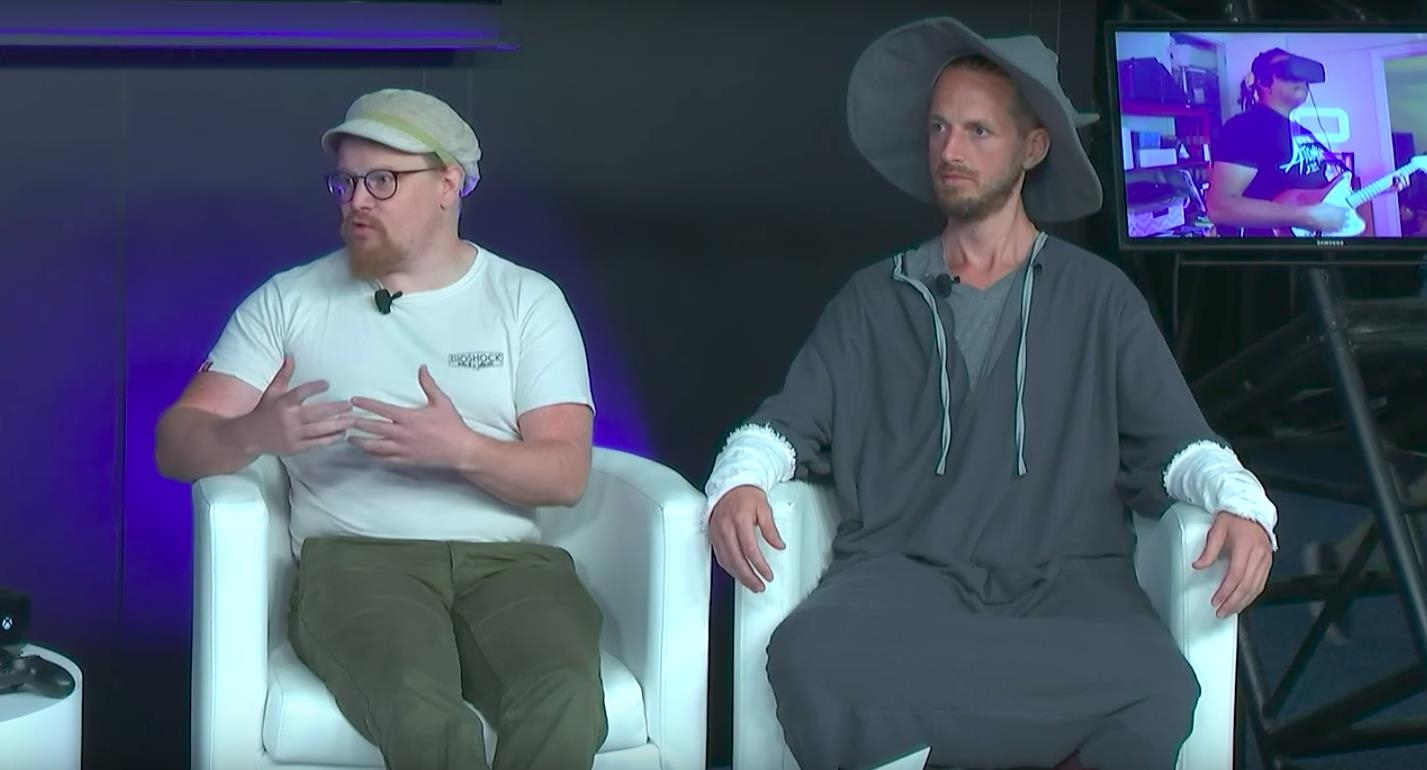Dim Bulb Games founder Johnnemann Nordhagen helped create BioShock 2 and Gone Home, two diametrically opposed first-person games, at least when it comes to the use of violence. He’s now working on Where the Water Tastes Like Wine, a narrative-driven story that dives into the rich folklore of the American South. As with Gone Home, there’s no combat in this new game. Instead, it’s driven by the story itself, the music, and the humid, star-speckled environment.

Meanwhile, Nathanael Weiss of Wizard Fu is building Songbringer, a procedurally generated hack-and-slash game that looks like a classic pixelated experience — swords, slaughter and all. But, for Weiss, there’s a big difference between violence and gore, and as slashy as Songbringer is, it doesn’t celebrate killing.
On the Engadget stage at E3 2017, Nordhagen and Weiss shared their thoughts on the evolution of violence in video games, from the original Doom and Mortal Kombat to Where the Water Tastes Like Wine and Songbringer.
Follow all the latest news from E3 2017 here!
(13)